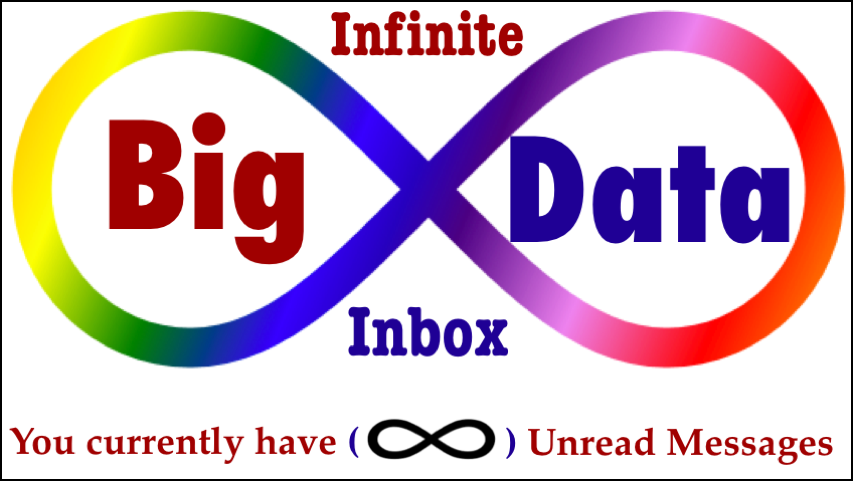Big Data and the Infinite Inbox
/
Occasionally it’s necessary to temper the unchecked enthusiasm accompanying the peak of inflated expectations associated with any hype cycle. This may be especially true for big data, and especially now since, as Svetlana Sicular of Gartner recently blogged, big data is falling into the trough of disillusionment and “to minimize the depth of the fall, companies must be at a high enough level of analytical and enterprise information management maturity combined with organizational support of innovation.”
I fear the fall may feel bottomless for those who fell hard for the hype and believe the Big Data Psychic capable of making better, if not clairvoyant, predictions. When, in fact, “our predictions may be more prone to failure in the era of big data,” explained Nate Silver in his book The Signal and the Noise: Why Most Predictions Fail but Some Don't. “There isn’t any more truth in the world than there was before the Internet. Most of the data is just noise, as most of the universe is filled with empty space.”
Proposing the 3Ss (Small, Slow, Sure) as a counterpoint to the 3Vs (Volume, Velocity, Variety), Stephen Few recently blogged about the slow data movement. “Data is growing in volume, as it always has, but only a small amount of it is useful. Data is being generated and transmitted at an increasing velocity, but the race is not necessarily for the swift; slow and steady will win the information race. Data is branching out in ever-greater variety, but only a few of these new choices are sure.”
Big data requires us to revisit information overload, a term that was originally about, not the increasing amount of information, but instead the increasing access to information. As Clay Shirky stated, “It’s not information overload, it’s filter failure.”
As Silver noted, the Internet (like the printing press before it) was a watershed moment in our increased access to information, but its data deluge didn’t increase the amount of truth in the world. And in today’s world, where many of us strive on a daily basis to prevent email filter failure and achieve what Merlin Mann called Inbox Zero, I find unfiltered enthusiasm about big data to be rather ironic, since big data is essentially enabling the data-driven decision making equivalent of the Infinite Inbox.
Imagine logging into your email every morning and discovering: You currently have (∞) Unread Messages.
However, I’m sure most of it probably would be spam, which you obviously wouldn’t have any trouble quickly filtering (after all, infinity minus spam must be a back of the napkin calculation), allowing you to only read the truly useful messages. Right?


